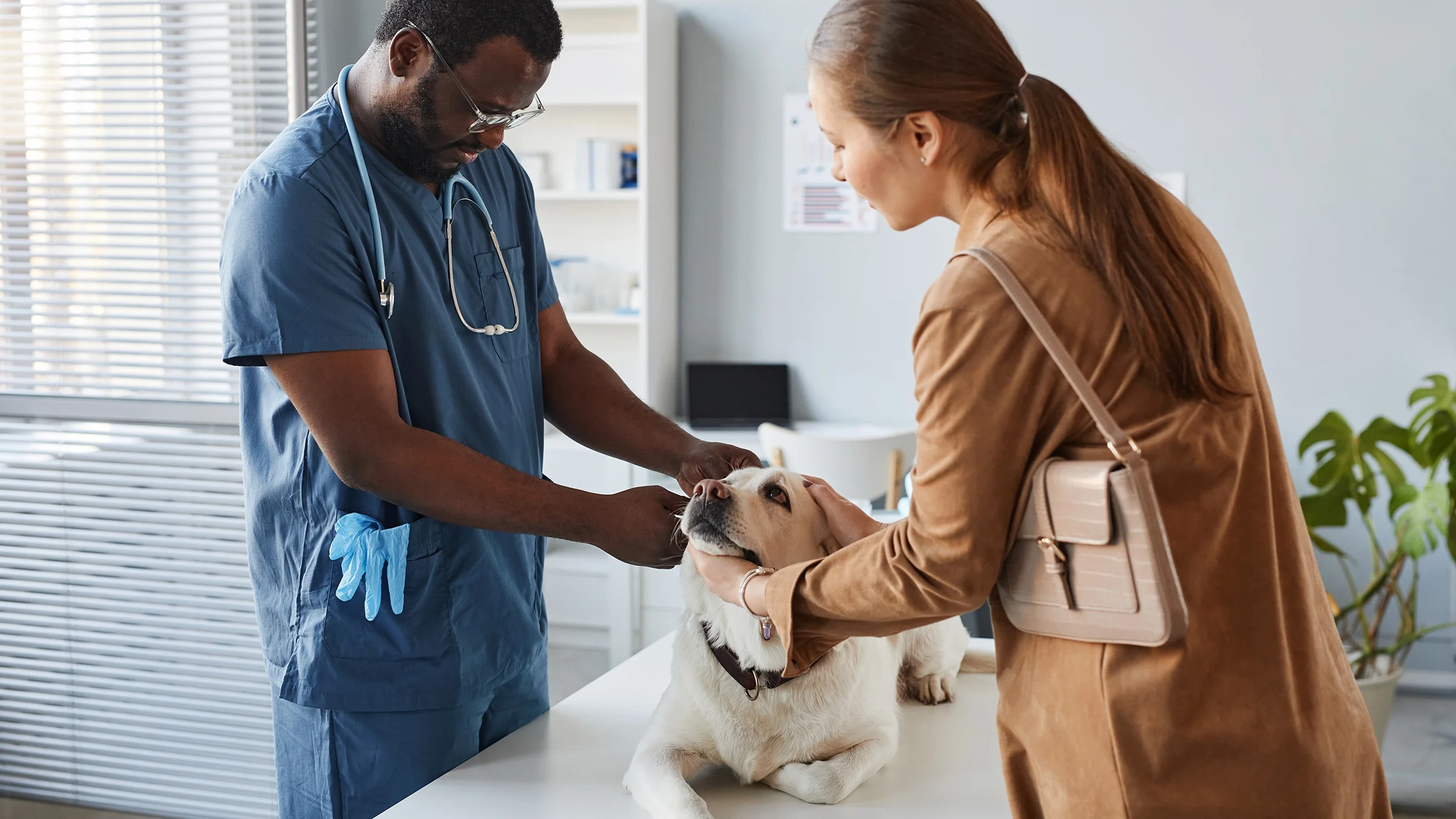Key takeaways:
Albon (sulfadimethoxine) is used to treat coccidia (intestinal parasites) and some bacterial infections in dogs.
The most common side effects of Albon for dogs are loss of appetite, vomiting, and diarrhea.
More serious side effects may occur. Work with your veterinarian to monitor your dog during treatment.
Save on related medications
Coccidiosis is a relatively common parasitic infection in small puppies. But it can also affect adult dogs. While some cases are asymptomatic, large numbers of coccidia parasites can lead to vomiting and diarrhea.
When veterinarians diagnose dogs with coccidiosis, they often reach for Albon (sulfadimethoxine) to treat the infection. This medication is very effective and well tolerated by most dogs, but it can have side effects.
Continue reading to learn more about Albon for dogs.
Search and compare options
Albon for dogs at a glance
Common names | Albon (sulfadimethoxine) |
What it treats | Coccidia (parasites) and some bacterial infections |
How it comes (forms) | Liquid suspension, oral tablet |
Common side effects | Loss of appetite, vomiting, diarrhea |
What is Albon for dogs and how does it work?
Albon is a type of antibiotic. It is used to treat coccidia (a group of protozoa parasites) and a variety of bacterial infections in dogs.
Albon works by inhibiting the growth and reproduction of certain parasites and bacteria. It blocks their production of folic acid, making them unable to reproduce.
What is Albon used for in dogs?
Albon is often used to treat coccidiosis in dogs. As mentioned, this infection is caused by single-celled protozoa parasites, known as coccidia. While many cases of coccidiosis don’t cause symptoms, large numbers of coccidia may cause vomiting and diarrhea. Symptoms are most common in puppies and in older, debilitated dogs.
Albon can also be used to treat a number of bacterial infections. This medication is FDA approved for the treatment of the following conditions in dogs:
Skin infections
Respiratory infections
Urinary tract infections
Your veterinarian will determine if Albon is the best choice to treat your dog’s infection.
Read more like this
Explore these related articles, suggested for readers like you.
How is Albon given to dogs and what is the typical dosage?
Albon is available as a liquid suspension and an oral tablet. In general, small dogs receive the liquid suspension and larger dogs receive oral tablets. Your veterinarian will calculate the best Albon dosage for your dog based on their body weight and the condition that’s being treated.
Follow your veterinarian’s directions carefully when giving your dog Albon. Your veterinarian may prescribe a higher dosage for your dog’s first day of treatment and a lower dosage for the following days. This dosage schedule can help maximize the benefits of Albon while minimizing the risk of side effects.
What are the common side effects of Albon in dogs?
Most dogs tolerate Albon well, with minimal side effects. The most common side effects include:
Decreased appetite
Vomiting
Diarrhea
Giving Albon to your dog with food can reduce the risk of these gastrointestinal side effects.
Albon can cause decreased tear production in approximately 15% of dogs who take it. This can lead to a painful condition known as dry eye, or keratoconjunctivitis sicca (KCS). If your dog develops eye inflammation while taking Albon, contact your veterinarian as soon as possible.
In general, it’s important to monitor your dog while they’re taking Albon and contact your veterinarian if you notice any side effects. Fortunately, most side effects resolve within 24 hours of stopping treatment.
What are the most serious risks of Albon for dogs?
Although they’re relatively rare, some dogs experience serious side effects while taking Albon. These side effects are caused by allergic reactions to the medication.
Side effects related to serious allergic reactions to Albon include:
Fever
Skin rash
Hives
Joint inflammation
Changes to blood cell count (decreased red blood cells, white blood cells, or platelets)
Liver disease
Kidney disease
Albon may also increase the risk of bladder stones in some dogs.
While these side effects can be serious, they are uncommon. Potentially serious side effects are estimated to affect less than 4% of dogs taking Albon. And your veterinarian will assess your dog’s individual risk factors before prescribing them the medication.
Does Albon interact with any other dog medications?
Albon may interact with other medications for dogs. This can increase the risk of side effects and/or make medications less effective. Tell your veterinarian about any prescription or over-the-counter medications your dog is taking so they can look for potential interactions.
Medications that may interact with Albon include:
Anti-seizure medications
Cyclosporine
Antacids
Some antibiotics
Veterinarians also use caution when combining Albon with medications that affect the liver, kidneys, or bone marrow.
What should you do if your dog misses a dose of Albon?
If you forget to give your dog a dose of Albon, give them the medication as soon as possible. But if it’s almost time for their next dose, skip the missed one and resume their normal medication schedule. Do not give your dog a double dose of Albon to make up for a missed one.
The bottom line
Albon (sulfadimethoxine) is very effective at treating coccidiosis, an infection caused by coccidia parasites, and some bacterial infections in dogs.
In most cases, Albon is well tolerated with few side effects. When side effects do occur, they tend to be mild and include loss of appetite, vomiting, and diarrhea. Less commonly, dogs may experience dry eye while taking Albon. In rare cases, dogs may experience more serious side effects.
Fortunately, most side effects resolve quickly after a dog stops taking Albon. If your dog develops side effects while taking the medication, contact your veterinarian for guidance.

Why trust our experts?



References
Berger, S. L., et al. (1995). A quantitative study of the effects of Tribrissen on canine tear production. Journal of the American Animal Hospital Association.
Brooks, W. (2022). Sulfadimethoxine (Albon). Veterinary Partner.
Cohen, A. (n.d.). Coccidia in dogs. Cornell Richard P. Riney Canine Health Center.
Zoetis Inc. (2019). Albon- sulfadimethoxine suspension [package insert]. DailyMed.


















